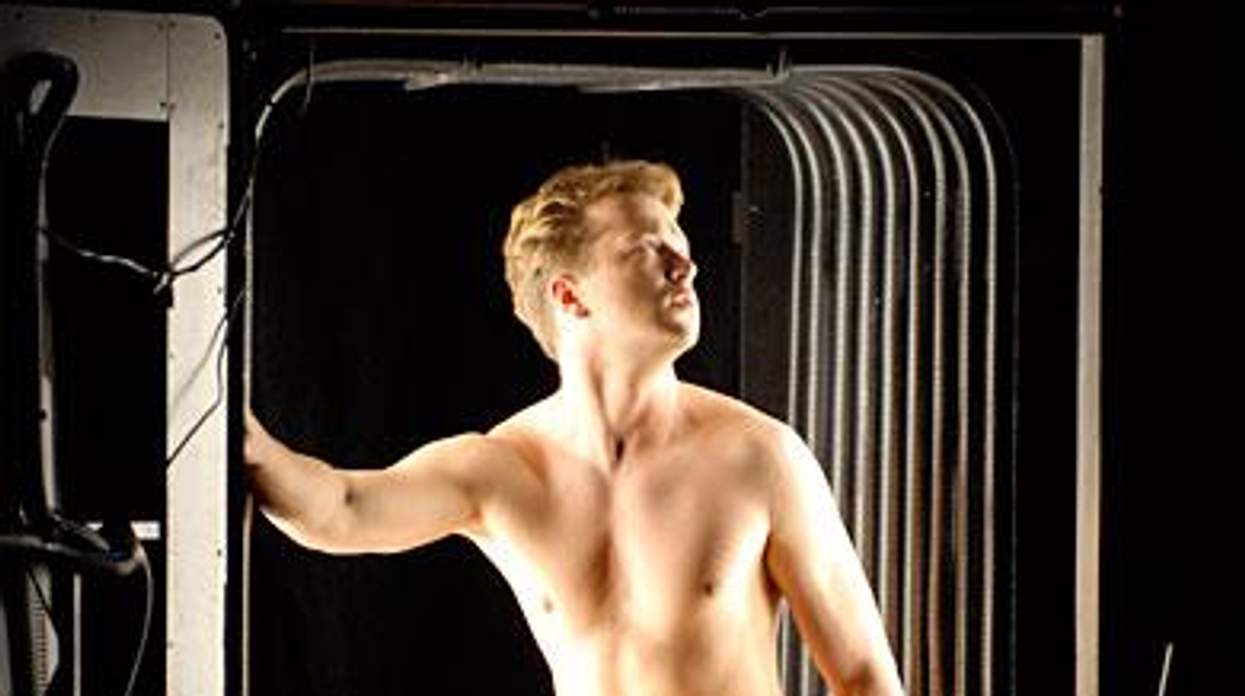Seeing a production of a newly commissioned opera like Howard Shore's The Fly (based on the 1986 David Croenenberg film, for which Shore also wrote the music) leads the critic to ask himself the age-old question: "Just what is opera?" Is it merely a play set to music? It is that, certainly, but this definition seems hardly satisfactory. Is it merely a theatrical entertainment with good tunes? Some operas do fit this description, but this also seems to miss the mark.
Opera, as an art form, is a dramatic entertainment in which the music should enhance the drama, should add to the dramatic experience in a way that words alone cannot. And this is not an easy task to undertake, thus the failure of so many recent attempts at the form. And thus (sadly) the failure of Shore's new work, just unveiled by the Los Angeles Opera.
Not that Shore chose an unviable subject. The original film (and the short story on which it is based) is bristling (excuse the pun) with operatic possibilities. For an opera to work in the theatre, it must contain real dramatic potential, which The Fly provides in abundance.
It is also a subject with which Shore is intimately familiar. Shore was also provided with an excellent, highly literate, and very witty libretto (written by David Henry Hwang), a top-notch cast, superb staging, and a director who knew the story inside and out (Cronenberg himself). So how come the opera doesn't (excuse me again, and I'm sure I'm not the first to say this) "fly"?
Unfortunately, the fault must be laid at Shore's feet. As stated above, the music of any opera (despite whatever kind of musical language the composer chooses) must bring out depths within the text, elucidate them, and transfigure them as only music can. Shore, at least in this case, just does not deliver.
So many moments in the drama should have been highlights but never unfolded in that fashion. The musical textures in the score are monochrome, lacking any kind of coloring, all remaining fixed on one tonal level. In fact, it all sounds like so much background music.
Not that the opera doesn't have its moments. It's told (as the 1986 film wasn't) in flashback, from the viewpoint of reporter Veronica "Ronnie" Quaife (Ruxandra Donose), in an unspecified period that appears to be the late 1950s. At a scientific awards reception, Ronnie meets scientist Seth Brundle (Daniel Okulitch), who takes her back to his place to see his ... telepods, two giant boxes that look very much like TV consoles and facilitate the miracle of teleportation.
There's not enough room here to go into the details of the plot (those familiar with the film will find most of it pretty much unchanged). The first act gets off to a rather slow start, but a love duet between the two principals is one of the more unexpected oases in the rather dry makeup of the score, as is the compelling finale of the act, which includes full-frontal male nudity (and Okulitch is certainly nice to look at). It is here that Shore produces the only example of motivic development in the score: "All Hail the New Flesh," heard earlier in the act, returns triumphantly at its end.
The second act enmeshes us deeper and deeper in an operatic chamber of horrors, but once again the score never seems to grow; it just hums along doing its atmospheric best but never taking the text to the next level. An excellent moment for an operatic showstopper, a nightmare scene in which Veronica dreams she is giving birth to a huge larva, falls flat, and Brundle's ultimate transformation into a human-fly hybrid, while horrific to observe, elicits nothing memorable from Shore's pen.
That being said, one could not imagine the opera being better presented than it was at the Dorothy Chandler Pavilion. Cast members (most of them making their Los Angeles Opera debuts) are uniformly excellent, especially the two leads. Okulich's Brundle is everything it should have been -- masculine, athletic, slightly creepy, yet sympathetic, as well as being beautifully sung. Donose's Veronica is acted with passion and pathos, her rich, creamy soprano caressing each note and making much out of very little.
Neither can the production be faulted. Pacing, staging, costuming, everything smacks of an intense desire to make the best entertainment possible.
But that draws us back to our original query -- what is opera? Ultimately, it is an opera's score, not the sum of its parts (no matter how superb) that make it a success, that ensure its immortality. Howard Shore is undoubtedly a talented musician, perhaps even a great one, and he is not the first musical talent to have struggled with the operatic form and lost. What makes The Fly so tragic is what it could have been.















Charlie Kirk DID say stoning gay people was the 'perfect law' — and these other heinous quotes
These are some of his worst comments about LGBTQ+ people made by Charlie Kirk.